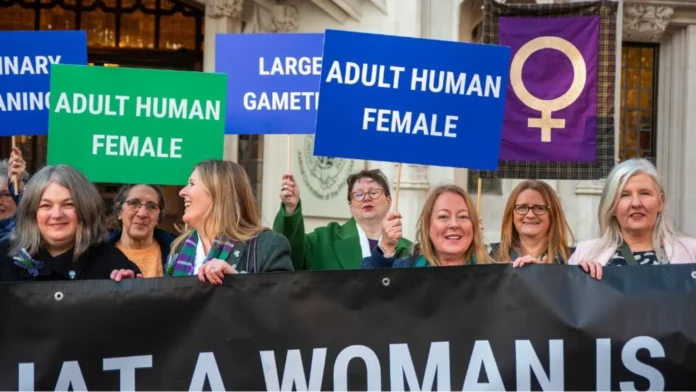The UK Supreme Court is set to deliver a landmark ruling today that could redefine how the law interprets the term “woman” — a decision with sweeping consequences for sex-based rights, equality legislation, and public policy across Britain.
At the heart of the case is a legal standoff between the Scottish government and campaign group For Women Scotland. The dispute stems from a 2018 bill aimed at achieving gender balance on public sector boards, which included transgender women with Gender Recognition Certificates (GRCs) in its quota provisions. For Women Scotland challenged this, arguing that only individuals born female should be counted for such purposes.
The Supreme Court is now tasked with interpreting whether the 2010 Equality Act’s reference to “sex” means biological sex or the legal sex acquired through the 2004 Gender Recognition Act. The Scottish government maintains that once a GRC is granted, an individual’s sex is legally changed “for all purposes,” thus entitling them to the same protections as someone born into that sex.
For Women Scotland, represented by Aidan O’Neill KC, contends that the term “woman” should retain its biological meaning, warning that including trans women in sex-based rights erodes protections for those born female. Meanwhile, government lawyer Ruth Crawford KC argues that excluding transgender individuals from these protections undermines the very principles of equality.
The ruling is expected to impact access to single-sex spaces such as hospital wards, prisons, and refuges, as well as areas like equal pay, maternity rights, and sports. It arrives amid heightened debate over gender identity, sparking concern from both feminist and transgender advocacy groups.
Amnesty International has warned that the case could set a precedent for rolling back other minority protections. The verdict is due at 09:45.



















